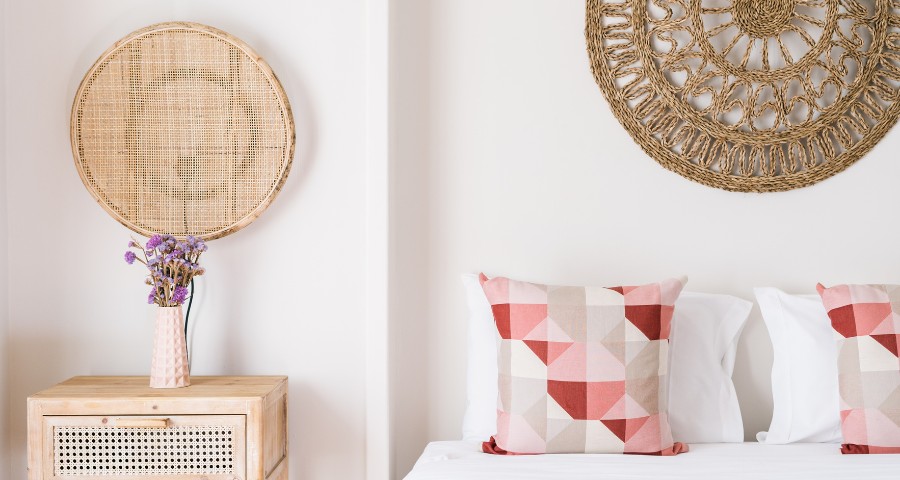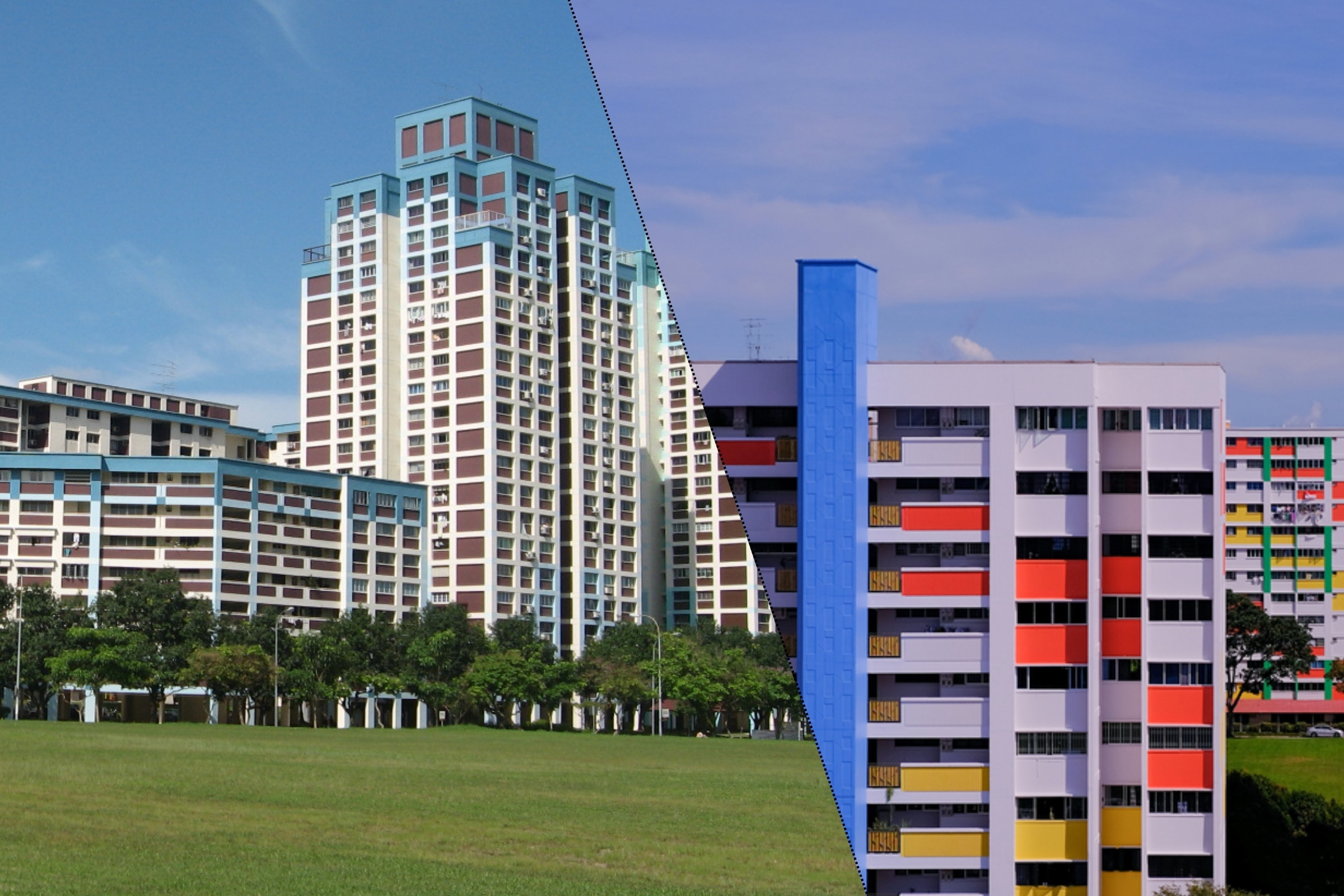Residential feng shui is all about arranging your home in a way that encourages good energy to flow freely.
But even with the best intentions, it’s easy to make a few missteps. From cluttered hallways to awkward mirror placements, everyday habits might be quietly disrupting your home’s harmony without you realising it. Whether you’re in a spacious landed house or a cosy HDB flat, being aware of these common pitfalls could make all the difference.
In this post, we’ll walk through the top mistakes people make with feng shui at home—plus offer a few friendly suggestions to help set things right.
1. Clutter and Disorganisation
Why Clutter Blocks Energy
One of the biggest feng shui mistakes is allowing clutter and mess to accumulate.
Cluttered countertops, overflowing closets or piled-up papers block the smooth flow of “chi” (energy) in a home. In feng shui terms, excessive stuff is thought to make the qi feel “stagnant,” which in turn can make a room—or even its occupants—feel tired or blocked. Even small items like shoes at the door, loose change, or untended laundry can disrupt the balance of a space.
In short, a messy home = messy energy.
Suggestions for Decluttering
By keeping your home reasonably tidy and deliberately discarding things you don’t truly need, you create breathing room for positive energy to flow. This doesn’t mean living like a minimalist if that’s not your style; just make sure what you do keep is loved and used, not left to gather dust.
2. Neglecting Doors and Entryways
Doors as Energy Portals
In feng shui, every door (especially the front door) is like a gate through which energy enters and exits.
A common error is to block doors with furniture or clutter, or to leave doors in poor repair. If a door can’t open fully or is stuck, that’s bad feng shui – it literally stops energy (and opportunity) from flowing.
Likewise, a cramped or dark entryway (with shoes, umbrellas, or boxes piled up) can make it feel hard for good chi to enter.
As one feng shui teacher advises, the entrance or “mouth of chi” should feel open and welcoming.
Keeping Entrances Clear
In short, treat each doorway as an invitation for positivity. Keep it open (literally), clean and well-maintained. Even small repairs like oiling a hinge or decluttering a hallway can make the front of house feel more receptive to good luck.
3. Overlooked Maintenance (Broken or Dirty Items)
The Toll of Neglect
Feng shui isn’t just about where you put things; it’s also about what state those things are in.
Broken, chipped or worn-out objects are considered bad feng shui because they symbolise decay or neglect. Architectural designers note that old or broken objects “will not only damage the energy in your personal space, but they can impact other areas of your life as well”. Even small things like a cracked mirror, a chipped vase, or a leaky roof can carry negative associations.
Essentially, they remind the subconscious that neglect and decay are present, which can contribute to stagnation of energy.
Suggestions for Good Upkeep
By keeping your home in working order and tidy, you symbolically show that you value the space and yourself. This invites positive energy in, because nothing “brings down” the home’s vibes.
4. Incorrect Furniture and Object Placement
Blocking the Flow
How you arrange furniture can strongly influence feng shui. Common mistakes include putting large pieces in corners (which traps energy there), placing sofas or chairs where they block walking paths, or aligning furniture improperly.
For instance, one expert warns against putting a bed or desk directly in line with a doorway – it draws energy straight out of the room. Another is to push a double bed up against one wall so that only one side is accessible; this creates imbalance (with all the “yin and yang” leaning to one side).
Desks in the bedroom are another issue: seeing your work desk while lying in bed can make it hard to mentally switch off and relax. Conversely, a desk facing a window might seem nice, but in feng shui your energy could be pulled out the window toward the view instead of focusing on your work.
How to Get Better Layout
When arranging, think like a visitor: if you walked in with a cup of tea, would you be able to move easily to a chair? Every blockage or cramped spot is an invitation for stagnant energy, so aim for balance, comfort and a clear path.
5. Misplaced Mirrors and Decor
Mirror Missteps
Mirrors amplify and reflect energy, so their placement can either enhance or harm your feng shui. A classic blunder is hanging a mirror directly opposite the front door. This can “push away” the positive energy trying to enter.
Likewise, placing a mirror to face your bed is generally discouraged, as it may disturb sleep by doubling up the energy or bringing more activity into a restful space. In the bathroom, avoid hanging mirrors so they reflect the toilet; some say that symbolically ‘throws good energy away’.
Object Arrangements to Rethink
Decor Suggestions
Remember that all objects have symbolic meaning in feng shui. If something feels “off” when you look at it, consider moving it. Aim for décor that brings life and harmony, and be especially mindful of where you reflect that energy.
6. Bedrooms: Sleep Space Setup
Why the Bedroom Needs Special Care
The bedroom is arguably the most important room for feng shui, since it’s where we rest and recharge. Mistakes here can affect sleep and relationships.
Two key issues often arise: bed positioning (addressed above) and bedroom atmosphere. For example, placing a bed directly in line with the door, or backing the bed up right against a wall with no space, is thought to disrupt a sense of safety and balance.
Plants and certain electronics can also interfere with restful energy.
Creating a Calming Sanctuary
Feng shui isn’t about superstition here; it’s about making your bedroom a retreat. If a layout or item makes you feel uneasy, it’s worth adjusting. Often, the remedy is simple: move a plant, or switch off a gadget, or hang a curtain.
7. Ignoring Natural Light and Airflow
The Need for Freshness
An often-overlooked feng shui principle is the importance of natural light and ventilation. A bright, airy room naturally has better energy than a dark, stuffy one.
Feng shui enthusiasts emphasise that stagnant, uncirculated air can leave the chi feeling “flat” or heavy. Similarly, windowless nooks or rooms with heavy curtains permanently drawn can collect bad vibes.
In extreme cases, experts say that dark, closed rooms can even “feel anxious and emotionally stagnant”.
Suggestions to Let Light and Air In
Remember, feng shui at its heart is about harmony with nature. Letting natural elements (light, air, even a touch of plant life) permeate your home helps balance the energy in a very fundamental way.
Final Thoughts

In residential feng shui, small changes often yield the biggest effects.
By avoiding the common missteps above—such as letting clutter pile up, blocking doors and pathways, keeping broken things around, or misplacing mirrors—you make way for better energy flow and a more harmonious home environment.
Remember, feng shui suggestions are just that: suggestions. Try them out and see what feels right for you. Over time, you’ll sense how even subtle shifts (more light, a clear hallway, a clean front door) bring more ease and good energy into your daily life.
Have a question for us?
We welcome any question with no commitments. Master Louis Cheung will seek to clarify any doubts you may have.
“Master Louis Cheung has an approachable and comfortable personality along with competent skills. I can confidently recommend Master Louis Cheung to my friends. Thank you, Feng Shui Master Louis Cheung.”
 James H.
James H.Senior Financial Analyst







